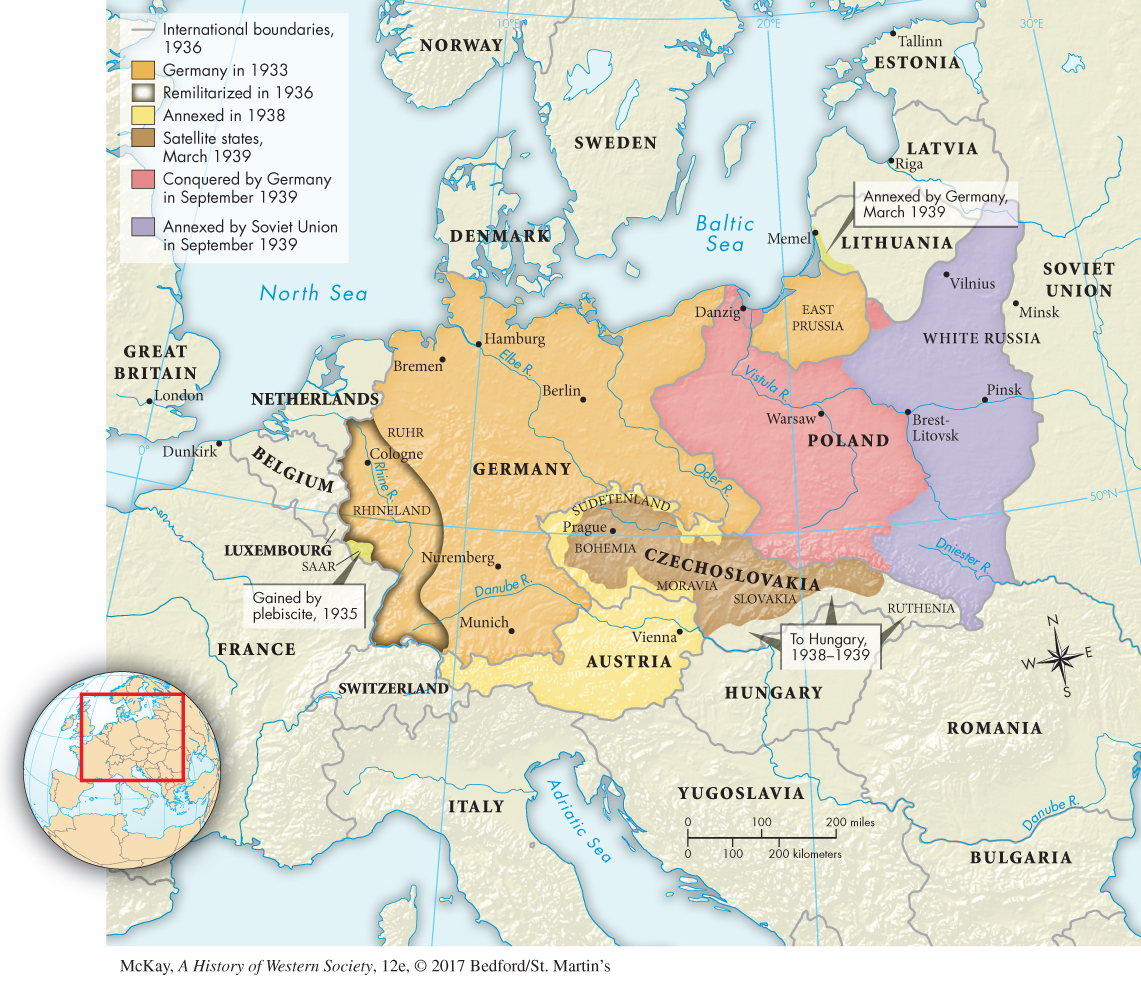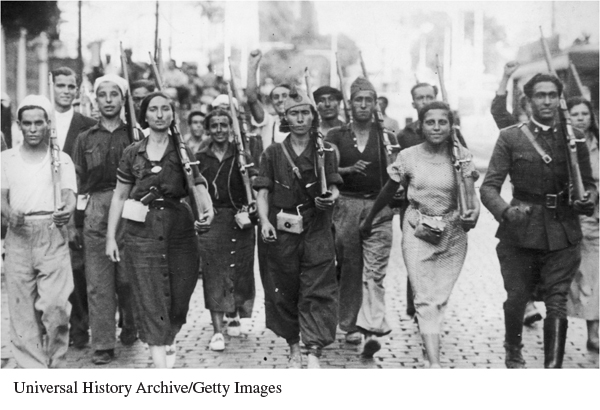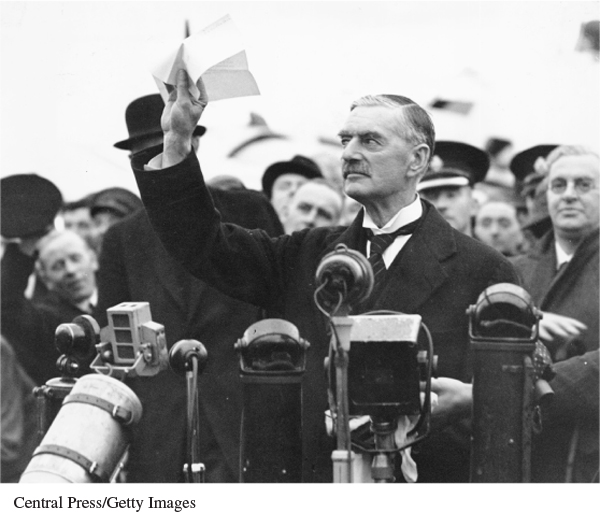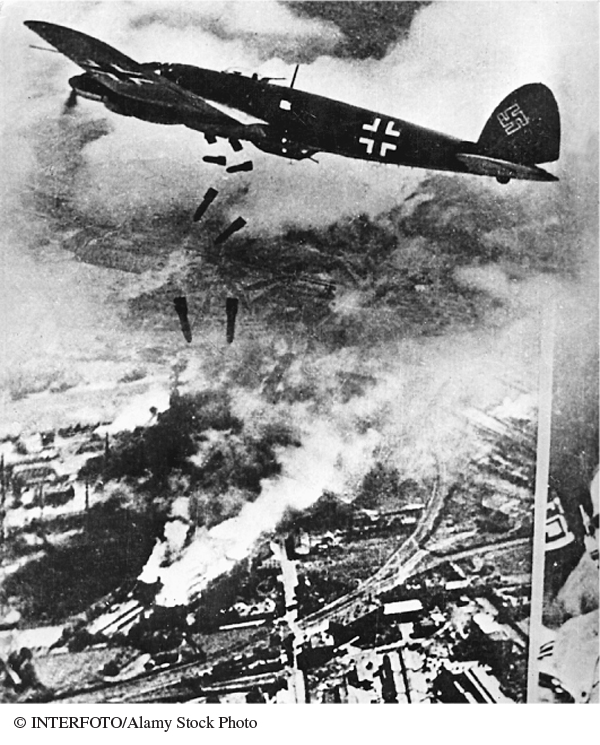A History of Western Society: Printed Page 926
A History of Western Society, Value Edition: Printed Page 885
A History of Western Society, Concise Edition: Printed Page 925
Aggression and Appeasement
The nazification of German society fulfilled only part of the Nazi agenda. While building the “people’s community,” the regime aggressively pursued policies meant to achieve territorial expansion for the supposedly superior German race. At first, Hitler carefully camouflaged his expansionist goals. Germany was still militarily weak, and the Nazi leader proclaimed his peaceful intentions. Germany’s withdrawal from the League of Nations in October 1933 nonetheless indicated that Gustav Stresemann’s policy of peaceful cooperation was dead (see Chapter 26). Then in March 1935 Hitler declared that Germany would no longer abide by the disarmament clauses of the Treaty of Versailles. He established a military draft and began to build up the German army. France and Great Britain protested strongly and warned against future aggressive actions.
Any hope of a united front against Hitler quickly collapsed. Britain adopted a policy of appeasement, granting Hitler what he demanded to avoid war. British appeasement, which practically dictated French policy, was motivated in large part by the pacifism of a population still horrified by the memory of the First World War. As in Germany, many powerful conservatives in Britain underestimated Hitler. They believed that Soviet communism was the real danger and that Hitler could be used to stop it. Such strong anticommunist feelings made an alliance between the Western powers and Stalin against Hitler highly unlikely.
When Hitler suddenly marched his armies into the demilitarized Rhineland in March 1936, brazenly violating the treaties of Versailles and Locarno (Map 27.2), Britain refused to act. France could do little without British support. Emboldened, Hitler moved ever more aggressively, enlisting powerful allies in international affairs. Italy and Germany established the so-

At the same time, Germany and Italy intervened in the Spanish Civil War (1936–1939), where their military aid helped General Francisco Franco’s revolutionary Fascist movement defeat the democratically elected republican government. Republican Spain’s only official aid in the fight against Franco came from the Soviet Union, for public opinion in Britain and especially in France was hopelessly divided on whether to intervene.

In late 1937 Hitler moved forward with plans to seize Austria and Czechoslovakia as the first step in his long-
Simultaneously, Hitler demanded that territories inhabited mostly by ethnic Germans in western Czechoslovakia — the Sudetenland — be ceded to Nazi Germany. Though democratic Czechoslovakia was allied with France and the Soviet Union and prepared to defend itself, appeasement triumphed again. In negotiations British prime minister Arthur Neville Chamberlain and the French agreed with Hitler that Germany should immediately take over the Sudetenland. Returning to London from the Munich Conference in September 1938, Chamberlain told cheering crowds that he had secured “peace with honor . . . peace for our time.” Sold out by the Western powers, Czechoslovakia gave in.

Chamberlain’s peace was short-
In August 1939, in an about-
For Hitler, everything was now set. On September 1, 1939, German armies and warplanes smashed into Poland from three sides. Two days later, Britain and France, finally true to their word, declared war on Germany. The Second World War had begun.
